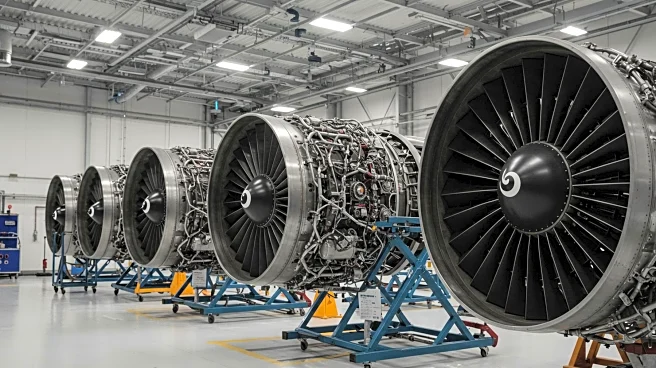What is the story about?
What's Happening?
Engine lessors are assessing maintenance trends as the aviation industry faces challenges related to shop capacity and turnaround times. According to Joe Hussar, head of portfolio for engine lessor ELFC, turnaround times in the overhaul market are improving, with increased capacity at both independent and OEM shops positively impacting the backlog of engines requiring maintenance. Despite ongoing supply chain issues, shop visit costs for current-generation engines remain predictable, and OEMs are working to reduce maintenance cost volatility for newer equipment.
Why It's Important?
The improvement in maintenance turnaround times is crucial for the aviation industry, which has been grappling with extended delays due to supply chain disruptions and durability issues with new-generation engines. Predictable maintenance costs are vital for airlines and lessors to manage operational budgets effectively. As the industry recovers from pandemic-related challenges, these developments may lead to increased efficiency and reliability in aircraft operations, benefiting airlines and passengers alike.
What's Next?
As the maintenance outlook brightens, engine lessors and MRO providers may continue to focus on optimizing shop capacity and reducing turnaround times. Airlines might explore cost-effective solutions such as lighter workscopes and module exchanges to extend the life of older equipment. The industry will likely see further collaboration between OEMs and independent shops to address supply chain issues and enhance maintenance processes.















